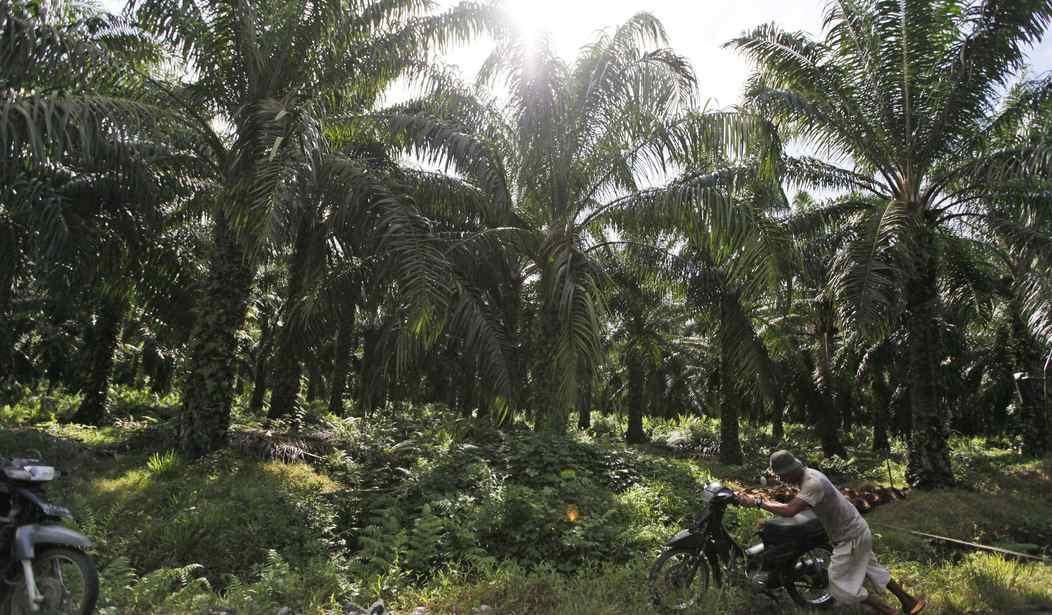Through just one poorly thought-out policy, the European Union, in an effort to engage in green virtue-signaling, is set to make food and cosmetic products more expensive and cause real, measurable, immediate harm to the planet in the process.
Palm oil is used to make everything from chocolate to shampoo. It is the go-to vegetable oil for many industries. Without it, store shelves would be much emptier. But in recent months, the eco-lobby around the world has declared war on it, culminating in the European Union cracking down on palm oil imports in brutal fashion.
The rationale behind the import ban focuses on deforestation. Leftists allege that palm oil production is single-handedly responsible for the destruction of the world’s rainforests, and that government has no choice but to intervene to protect natural habitats and biodiversity. In the UK, environmental campaign group Greenpeace even produced a TV commercial suggesting that buying products which contain palm oil makes orangutans homeless. The ad was then banned by the British authorities for being too political.
As is so often the case, the reality is very far from what the green lobby would have you believe. The alternatives to palm oil – sunflower oil, soybean oil, rapeseed oil, and so on – are much less land-efficient. That means you have to cut down a great deal more trees to produce the same amount of oil, which makes those products much worse for the environment than palm oil.
The EU’s myopic approach – banning an offending product, without thinking about the next steps – will force manufacturers to switch to other oils which are worse for the planet and, indeed, the orangutans. Despite catering to 40 percent of the world’s vegetable oil demand, palm oil is responsible for just 6 percent of the cultivated land used for vegetable oil production. Some alternative products such as soybean oil require eight times more land than palm oil. Banning it is actively bad for the natural world.
Recommended
But none of those facts will get in the way of the EU’s interventionism. The bloc is set to phase out palm oil as a biofuel completely by 2030. When fuel prices are skyrocketing and placing an enormous cost-of-living burden on already struggling families, diversity of fuel sources is desirable – but in the minds of lawmakers in Brussels, green virtue-signaling is more important, even when it does nothing to help protect the planet.
There is a real risk of American politicians on the left picking up the EU’s mantle and championing American regulators cracking down on palm oil. The environment is the issue of the day and American lawmakers who sign up blindly to eco-socialism, attempting to prioritize the planet ahead of consumer interests, are susceptible to buying into the flawed anti-palm oil narrative.
Perhaps even more urgent than the environmental problems with forcing palm oil out of the market are the financial consequences. Forcing manufacturers to use less land-efficient products will make production of food and cosmetics more expensive. Those costs will filter through to consumers and worsen the cost-of-living crisis, piling on the inflationary pressure.
If European and American politicians really do want to help end deforestation, the best course of action is promoting innovation within the palm oil industry. Even the World Wildlife Fund concedes that state actors should include industry innovators rather than resorting to sweeping laws and blanket bans. In fact, 90 percent of the palm oil imported to Europe is certified as sustainable anyway, proving that once again, this state intervention was never about saving the planet at all.
Jason Reed is a writer and broadcaster on politics and policy for a wide range of outlets. Follow him on Twitter @JasonReed624

























Join the conversation as a VIP Member